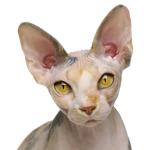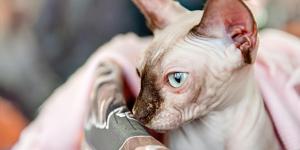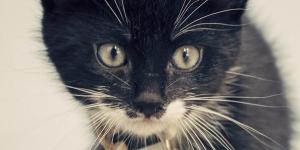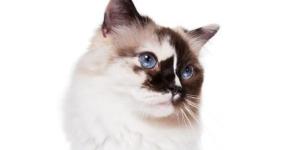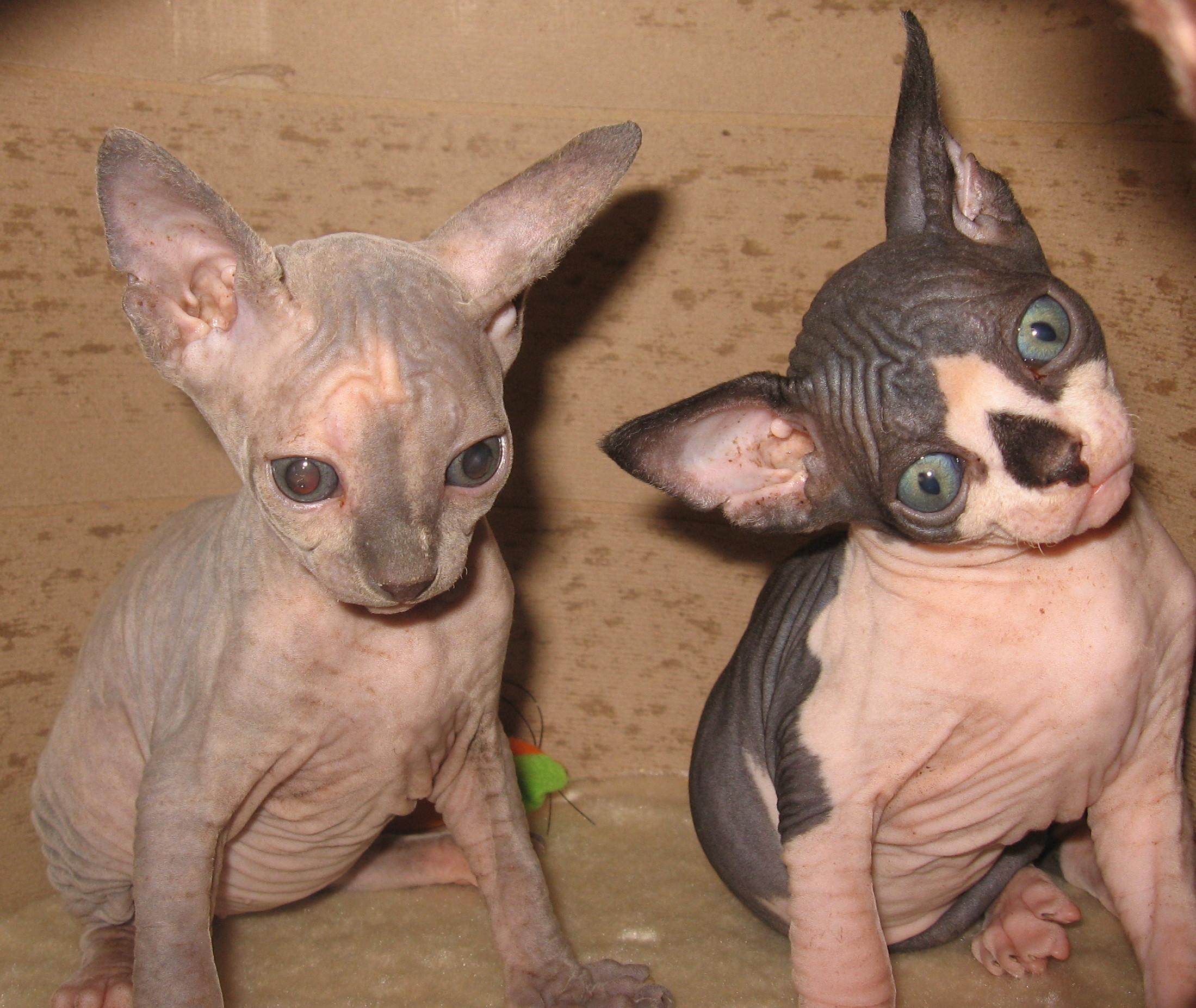Sphynx
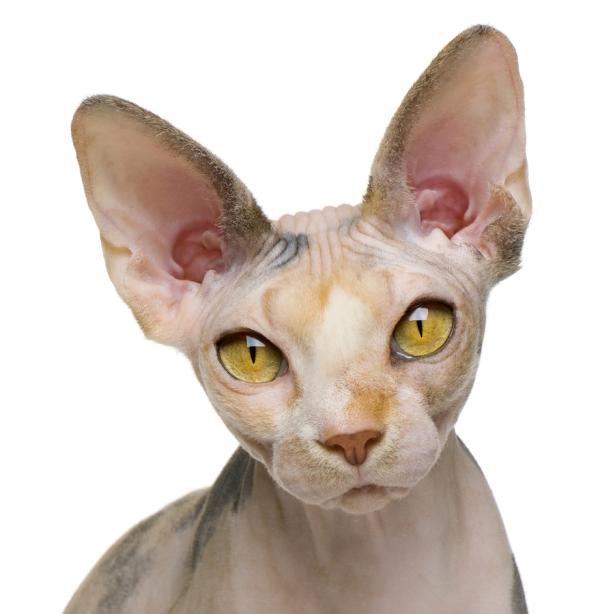
The Sphynx is a very unique cat. It was the first cat without hair or apparent fur to be accepted as a breed. The sphynx has created an interesting dynamic in human society with its large group of likes and dislikes. Many people appreciate the cat for its different features and hairless skin, while others dislike the sphynx’s different appearance. Breeders believe that the origins of the sphynx come from the Devon Rex breed. Both cats share very similar characteristics, the main difference being that of hair.
The Sphynx is originally a Canadian cat breed born hairless as a result of genetic mutation, a common process in the evolution of species. In the 60’s, a group of breeders decided to maintain this aesthetic of hairless cats, and from there grew the sphynx breed that we know today.
- America
- Canada
- Category III
- 7-11
- 11-13
- 13-17
- 17-22
- 22-30
- 8-10
- 10-15
- 15-18
- 18-20
Physical Appearance
It is a medium-sized, elongated and muscular cat. Its huge ears stand out on its naked-looking body, forming folds in different areas. Although the Sphynx cat is considered to have no hair, the reality is that the fur is very thin and short, so much so that it is unappreciated. A sphynx can appear in a range of color combinations that result in uniquely colored skins.
Character
Sphynx cats are generally sweet, loving and peaceful. They love to rest in comfortable places next to you while enjoying calm and tranquil moments. They are friendly, curious and are considered highly intelligent. The Sphynx is also known as a ‘talker’ and it is common for a sphynx to make noise or meow a lot. These cats are very good at keeping themselves occupied and at entertaining themselves, however, they love to have the attention of their owners.
Health
Although at first sight they seem delicate and fragile, the sphynx is a robust and strong cat. To keep it at its optimal condition, when necessary you should take it for a check-up at the veterinarian and make sure that it is dewormed. Vaccines are a very important part of its health, do not neglect this.
Some common diseases related to the sphynx cat are:
Feline leukemia: This infection is contagious through blood and saliva. Hygiene and preventative vaccinations will prevent your cat suffering from this disease.
Infectious peritonitis: This infection is highly contagious. It presents itself through the feces of the infected animal.
Herpesvirus: Affects the respiratory tract of the animal.
Panleukopenia: This infection is very serious and highly contagious, it is also transmitted through feces.
Chlamydiasis: Is an upper respiratory disease. It creates conjunctivitis and rhinitis.
Bordetelsosis: Also affects the upper respiratory tract.
And as with all cats, comes the issue of internal and external parasites. This problem can be prevented through use of proper deworming treatments, which can be done at your trusted veterinary center.
Take Care
This particular breed of cat, because of its lack of hair, has a hard time maintaining body temperature and warmth. For this reason, you should always keep your Sphynx in a well warmed area (especially in winter), as it lacks hair protection against temperature change.
These cats tend to get dirty more easily than others, and for this reason there needs to be a high focus on hygiene. This cat requires its owners help to stay clean and neat, and it needs to be bathed every 20 or 30 days. In addition, many of these cats don’t have eyelashes, which causes them to tear excessively. You can clean their eyes with physiological serums and should remove any eye discharge daily.
Their ears also require specific care because this breed accumulates a large amount of fat in the auditory pavilions. If you need to, you can go to your veterinarian for advice and they will show you how to do this.
Lastly, on the topic of hygiene, its nails and personal space should always be clean, in order to avoid any hygiene problems or infections.
In addition, the sphynx cat needs adequate nutrition. You can find specific feed for this unusual breed in any pet store or at your vet, but always take into account the likes and dislikes of your own feline, as they can be subjective. It is also very important to leave fresh and clean water for your cat at all times.
Sphynx photos
